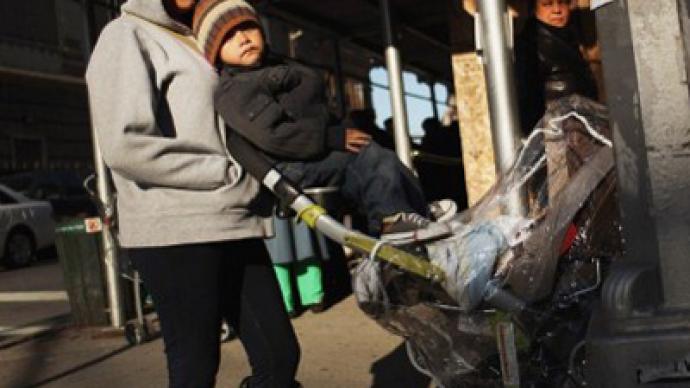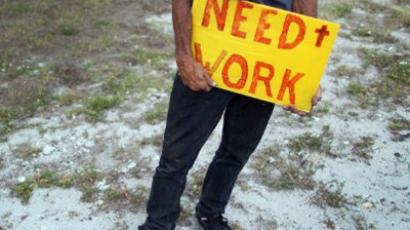Poverty pulverizes school-age demographic

The last great recession that ripped Americans of their income played a tremendous toll on most everyone. According to new US Census data though, perhaps hit hardest by the economic turmoil is the youth of the country.
Experts mulling over 2010 data out of the US Census Bureau report that while much of America has been plagued with a poverty epidemic, one of every five counties in the country has seen significant increases in the percentage of their school-age poor over the last few years. Going over just the largest 100 school districts in America, 96 percent saw a growth in children stricken with poverty between 2007 and 2010. That puts over 45 percent of the 54-million school-age children in districts experiencing high poverty.In Milwaukee, Wisconsin, nearly 50 percent of school-aged children are living in poverty, with overall state experiencing an increase in three percentage points in that same span. In the state of Alabama, children 18 and under saw the same surge."I've been doing this for eight years, and I don't ever remember seeing this much of an increase (in child poverty rates)," John Johnson of the Wisconsin Department of Public Instruction tells the Journal Sentinel. "The recession has had an impact on children and their families."In many cities, children’s only comfort from a crumbling household comes thanks to the school. In Milwaukee, 82 percent of attendees in the district qualify for free or reduced-price lunches. In the Monticello district outside of New York City, those that are served up free meals have jumped ten percentage points in just the last year alone."For some students, it's the only warm meal that they may have that day," Monticello Superintendent Daniel Teplesky tells the Times Herald-Record."When they walk into the classroom, many didn't get sleep the night before, and they might be dozing during the day. They might not be able to focus because they're too hungry," advocate HyeSook Chung adds to the Washington Examiner.Statistical jumps are seen from coast-to-coast, with only a few miles often separating the poorest from the poor with the richest of the rich. In Montgomery Country, Maryland outside of Washington DC, the poverty rate doubled between 2007 and 2010. In Washington itself, the District becomes one of only 73 jurisdictions nationwide to surpass the 30 percent mark, with 30.9 percent of the school children living below the poverty line, which is around $22,000 for a family of four; including all ages, more than one-in-ten residents in DC live below half of that level. Yet, only a few miles away in Falls Church, VA, the posh suburb boasts only a 3 percent poverty level according to new Census data.














